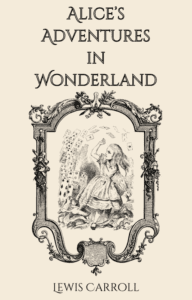This evening there arrived from Gratz the grave, dark-faced son of the picture cleaner, with a horse and cart laden with two large packing cases, having many pictures in each. It was a journey of ten leagues, and whenever a messenger arrived at the schloss from our little capital of Gratz, we used to crowd about him in the hall, to hear the news.
This arrival created in our secluded quarters quite a sensation. The cases remained in the hall, and the messenger was taken charge of by the servants till he had eaten his supper. Then with assistants, and armed with hammer, ripping chisel, and turnscrew, he met us in the hall, where we had assembled to witness the unpacking of the cases.
Carmilla sat looking listlessly on, while one after the other the old pictures, nearly all portraits, which had undergone the process of renovation, were brought to light. My mother was of an old Hungarian family, and most of these pictures, which were about to be restored to their places, had come to us through her.
My father had a list in his hand, from which he read, as the artist rummaged out the corresponding numbers. I don’t know that the pictures were very good, but they were, undoubtedly, very old, and some of them very curious also. They had, for the most part, the merit of being now seen by me, I may say, for the first time; for the smoke and dust of time had all but obliterated them.
“There is a picture that I have not seen yet,” said my father. “In one corner, at the top of it, is the name, as well as I could read, ‘Marcia Karnstein,’ and the date ‘1698’; and I am curious to see how it has turned out.”
I remembered it; it was a small picture, about a foot and a half high, and nearly square, without a frame; but it was so blackened by age that I could not make it out.
The artist now produced it, with evident pride. It was quite beautiful; it was startling; it seemed to live. It was the effigy of Carmilla!
“Carmilla, dear, here is an absolute miracle. Here you are, living, smiling, ready to speak, in this picture. Isn’t it beautiful, Papa? And see, even the little mole on her throat.”
My father laughed, and said “Certainly it is a wonderful likeness,” but he looked away, and to my surprise seemed but little struck by it, and went on talking to the picture cleaner, who was also something of an artist, and discoursed with intelligence about the portraits or other works, which his art had just brought into light and color, while I was more and more lost in wonder the more I looked at the picture.
“Will you let me hang this picture in my room, papa?” I asked.
“Certainly, dear,” said he, smiling, “I’m very glad you think it so like.
It must be prettier even than I thought it, if it is.”
The young lady did not acknowledge this pretty speech, did not seem to hear it. She was leaning back in her seat, her fine eyes under their long lashes gazing on me in contemplation, and she smiled in a kind of rapture.
“And now you can read quite plainly the name that is written in the corner.
It is not Marcia; it looks as if it was done in gold. The name is Mircalla, Countess Karnstein, and this is a little coronet over and underneath A.D.
1698. I am descended from the Karnsteins; that is, mamma was.”
“Ah!” said the lady, languidly, “so am I, I think, a very long descent, very ancient. Are there any Karnsteins living now?”
“None who bear the name, I believe. The family were ruined, I believe, in some civil wars, long ago, but the ruins of the castle are only about three miles away.”
“How interesting!” she said, languidly. “But see what beautiful moonlight!” She glanced through the hall door, which stood a little open. “Suppose you take a little ramble round the court, and look down at the road and river.”
“It is so like the night you came to us,” I said.
She sighed; smiling.
She rose, and each with her arm about the other’s waist, we walked out upon the pavement.
In silence, slowly we walked down to the drawbridge, where the beautiful landscape opened before us.
“And so you were thinking of the night I came here?” she almost whispered.
“Are you glad I came?”
“Delighted, dear Carmilla,” I answered.
“And you asked for the picture you think like me, to hang in your room,” she murmured with a sigh, as she drew her arm closer about my waist, and let her pretty head sink upon my shoulder. “How romantic you are, Carmilla,” I said. “Whenever you tell me your story, it will be made up chiefly of some one great romance.”
She kissed me silently.
“I am sure, Carmilla, you have been in love; that there is, at this moment, an affair of the heart going on.”
“I have been in love with no one, and never shall,” she whispered, “unless it should be with you.”
How beautiful she looked in the moonlight!
Shy and strange was the look with which she quickly hid her face in my neck and hair, with tumultuous sighs, that seemed almost to sob, and pressed in mine a hand that trembled.
Her soft cheek was glowing against mine. “Darling, darling,” she murmured, “I live in you; and you would die for me, I love you so.”
I started from her.
She was gazing on me with eyes from which all fire, all meaning had flown, and a face colorless and apathetic.
“Is there a chill in the air, dear?” she said drowsily. “I almost shiver; have I been dreaming? Let us come in. Come; come; come in.”
“You look ill, Carmilla; a little faint. You certainly must take some wine,” I said.
“Yes. I will. I’m better now. I shall be quite well in a few minutes. Yes, do give me a little wine,” answered Carmilla, as we approached the door.
“Let us look again for a moment; it is the last time, perhaps, I shall see the moonlight with you.”
“How do you feel now, dear Carmilla? Are you really better?” I asked.
I was beginning to take alarm, lest she should have been stricken with the strange epidemic that they said had invaded the country about us.
“Papa would be grieved beyond measure,” I added, “if he thought you were ever so little ill, without immediately letting us know. We have a very skilful doctor near us, the physician who was with papa today.”
“I’m sure he is. I know how kind you all are; but, dear child, I am quite well again. There is nothing ever wrong with me, but a little weakness.
People say I am languid; I am incapable of exertion; I can scarcely walk as far as a child of three years old: and every now and then the little strength I have falters, and I become as you have just seen me. But after all I am very easily set up again; in a moment I am perfectly myself. See how I have recovered.”
So, indeed, she had; and she and I talked a great deal, and very animated she was; and the remainder of that evening passed without any recurrence of what I called her infatuations. I mean her crazy talk and looks, which embarrassed, and even frightened me.
But there occurred that night an event which gave my thoughts quite a new turn, and seemed to startle even Carmilla’s languid nature into momentary energy.







The Dream of the Red Chamber
Completed